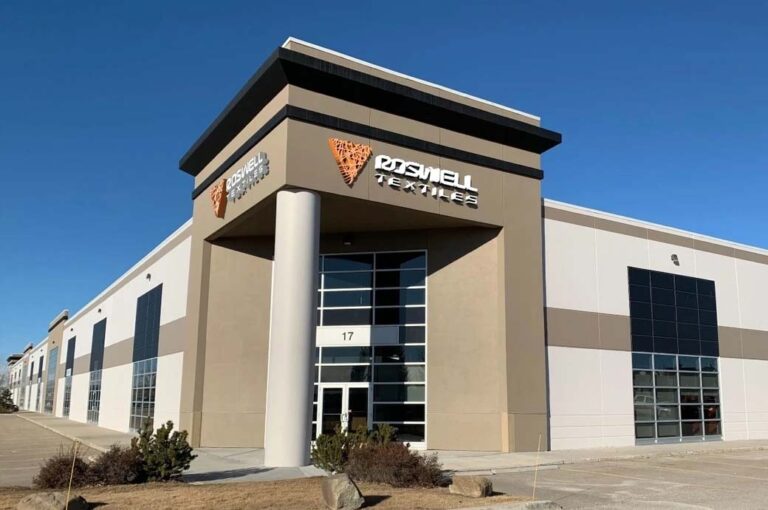
[ad_1]
Roswell Textiles was able to scale production quickly and efficiently, by engineering and manufacturing its own nonwoven production equipment in-house and making its first commercial sale of Canadian produced meltblown material in just 2 months. Building on this innovative spirit, Roswell Textiles is proud to announce its next generation of high performance and technical nonwoven materials under the brand name of Ecofuse. Ecofuse nonwoven materials are plant based and manufactured from biopolymers. These highly engineered materials possess similar technical specifications as synthetic, polypropylene materials but with a 65 per cent net carbon reduction. Ecofuse materials, as a result of their plant-based start of life, contribute to a more sustainable and circular economy, the company said in a media statement.
Roswell Textiles has launched Ecofuse, plant-based low carbon nonwoven materials that provides carbon offsets and intended to replace incumbent synthetic nonwoven materials with sustainable and environmentally friendly alternatives. Roswell Textiles developed, commercialised, and scaled Canada’s first domestic supply of synthetic meltblown during COVID-19.
Ecofuse materials are being used by Roswell Textile’s strategic partners and clients to decrease the carbon footprint of their products. The Ecofuse materials are already commercial in medical filtration, water filtration and residential filtration applications with additional commercialisation processes underway for the use of Ecofuse materials in hygiene, food and beverage packaging as well as in construction materials. Ecofuse meltblown materials, currently in commercial use in regulated medical applications, are certified to be 100 per cent biobased by the United States Department of Agriculture BioPreferred Programme.
Roswell Textiles utilises proprietary production technologies that allow for the technical processing of biopolymers to achieve the high-performance requirements in nonwoven materials that have previously been impossible to achieve at commercial scale. Ecofuse materials are being used to increase OEM’s accomplishment of net zero carbon emissions in their product lines, as well as helping companies and industries reduce their carbon emissions to be in compliance with federally and internationally mandated carbon reduction policies. Ecofuse materials align with The Paris Agreement, COP26 Initiatives, WHO, the Canadian Governments 2030 Emissions Reduction Plan, US federal executive orders and legislation (the Federal Buy Clean Initiative, Inflation Reduction Act, Building a Clean Energy Economy, and sustainable procurement initiatives).
“It is our belief that the Ecofuse materials can drive meaningful and substantial change in the way in which we manufacture products, helping to reduce our collective carbon footprint by simply utilising materials that are plant based and return to the environment in a more sustainable circular process versus synthetic plastics that will take thousands of years to degrade in our landfills. Small steps, like replacing the hundreds of thousands of tons of synthetic materials in HVAC filters with a plant based, sustainable alternative like Ecofuse, can help reduce the overall net carbon footprint of that product. We are thrilled to helping our partners achieve substantial outcomes in reducing their carbon emissions,” Kyle Fiolka, president of Roswell Textiles and chief innovation officer of PADM group, said.
Fibre2Fashion News Desk (GK)
[ad_2]
Source link